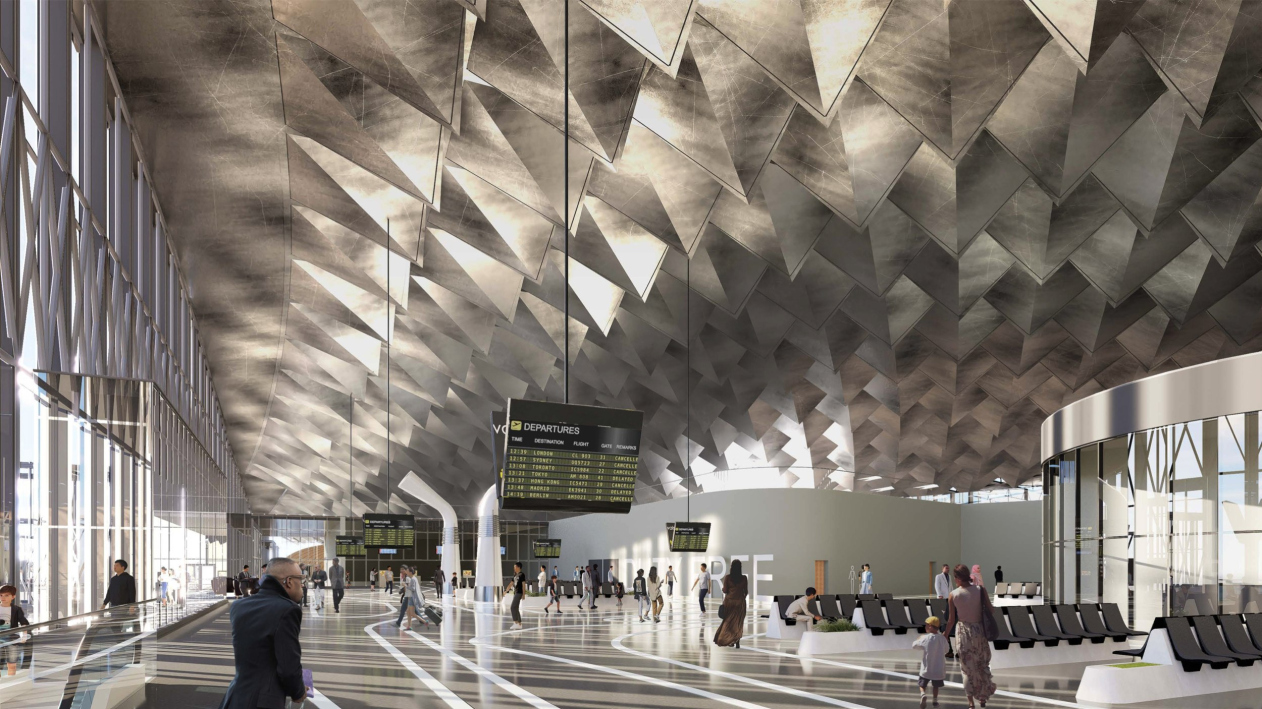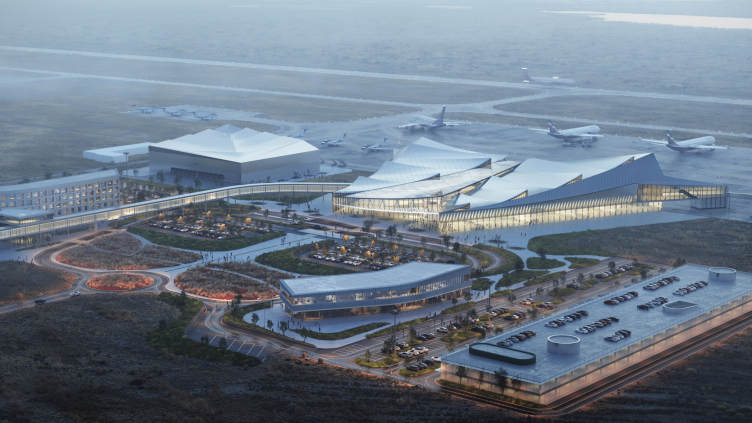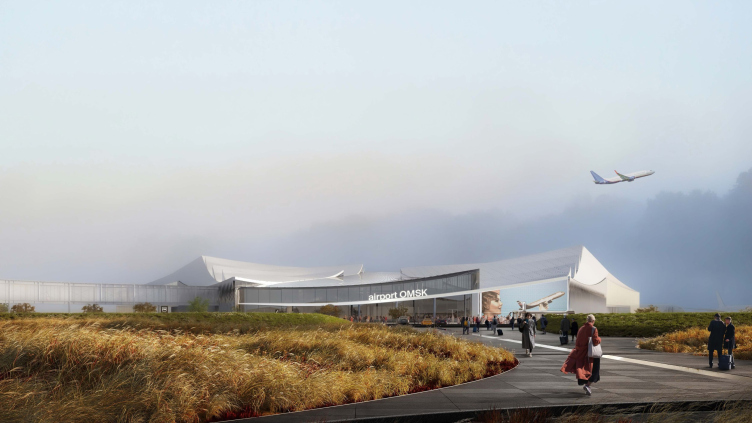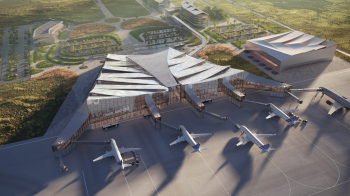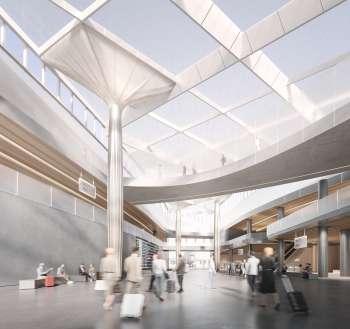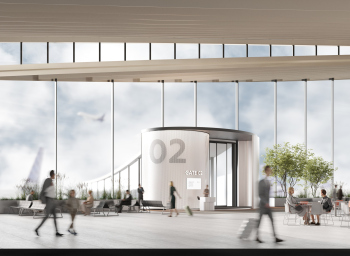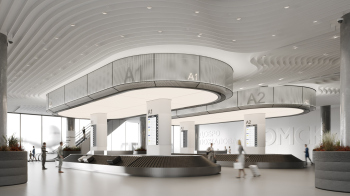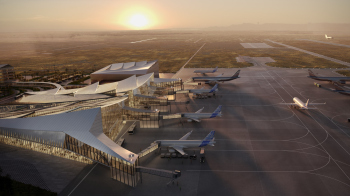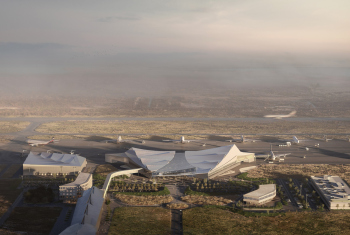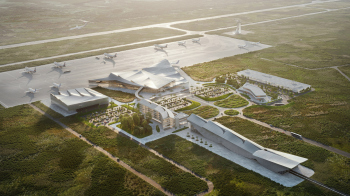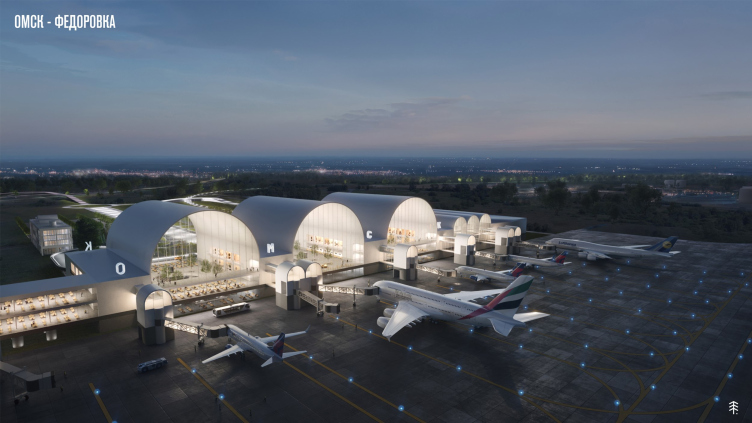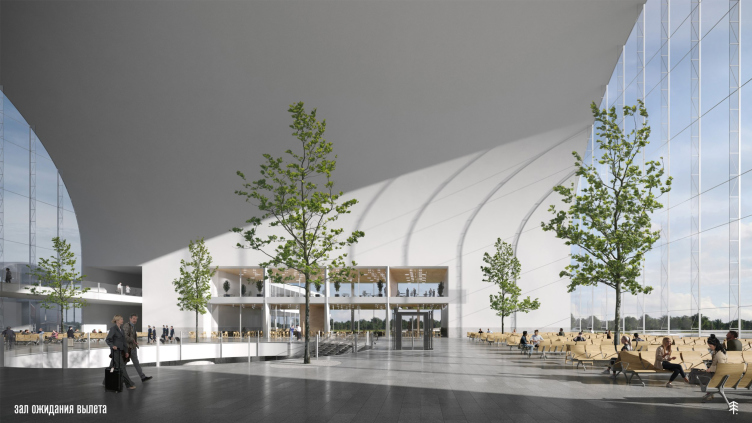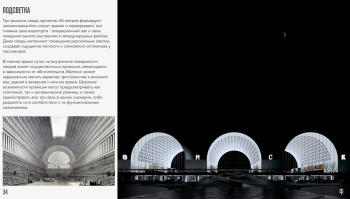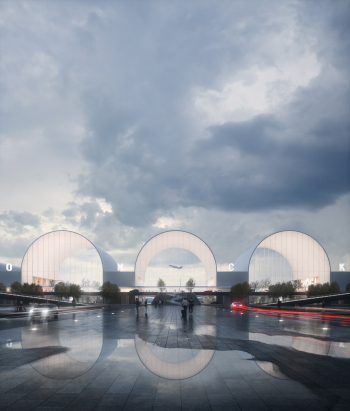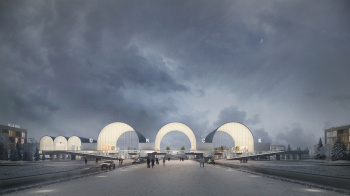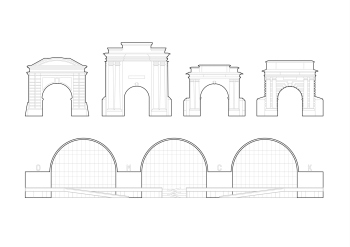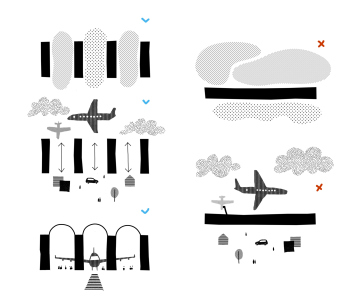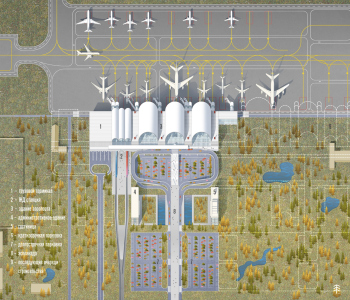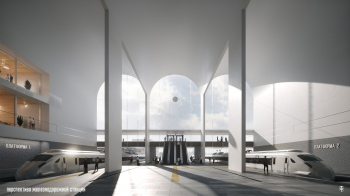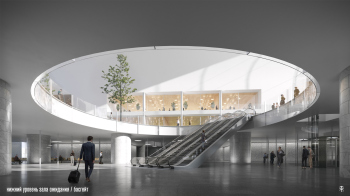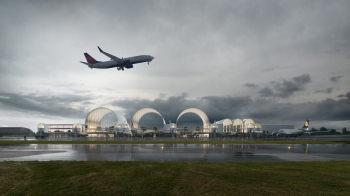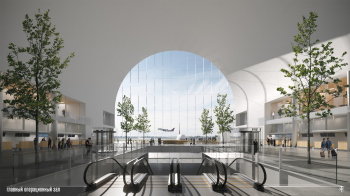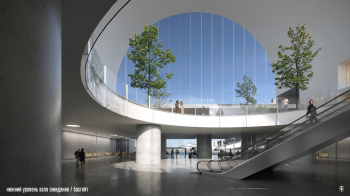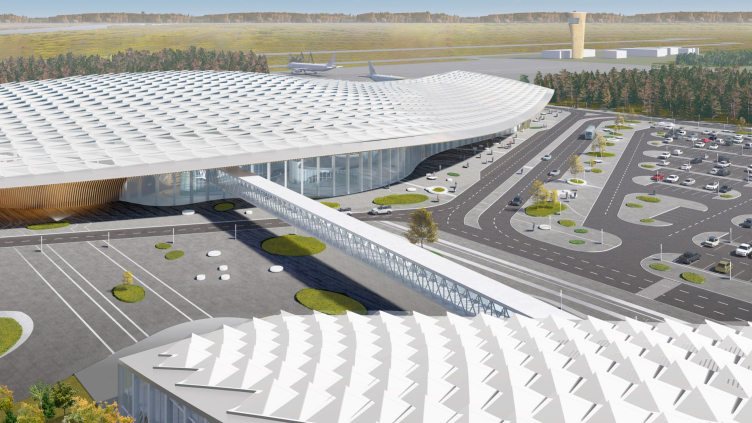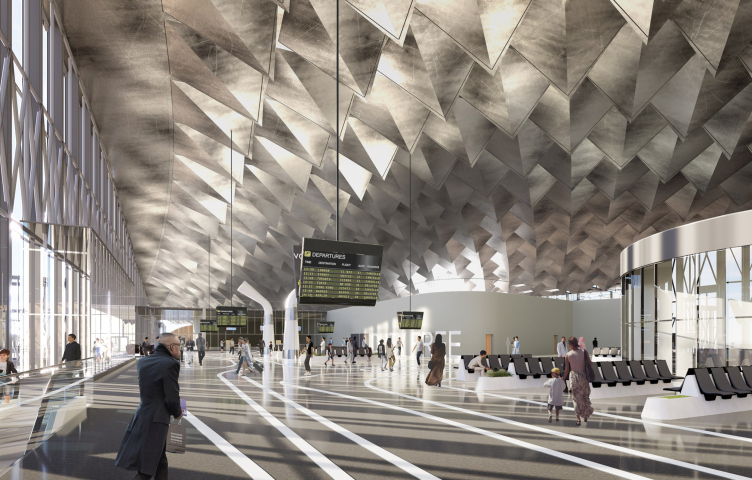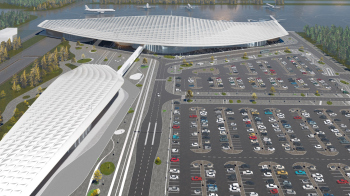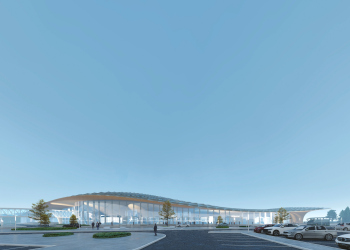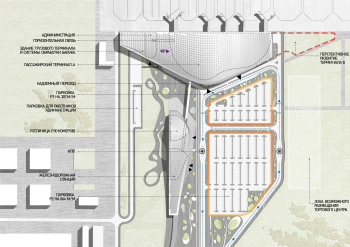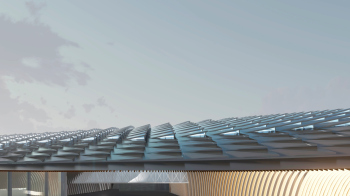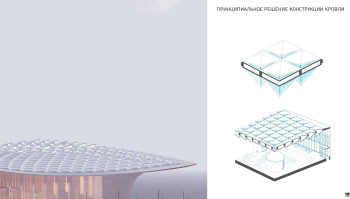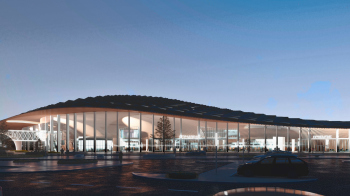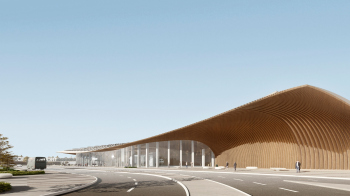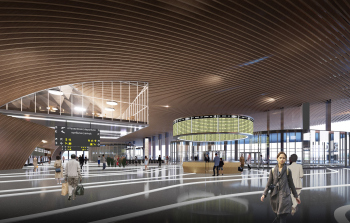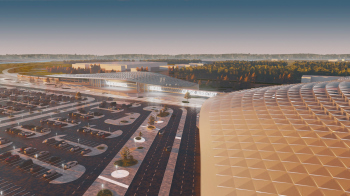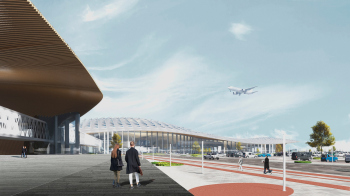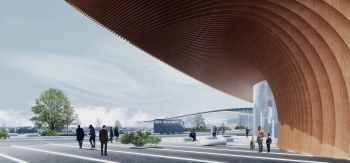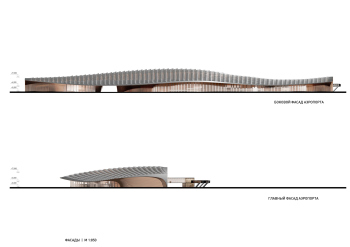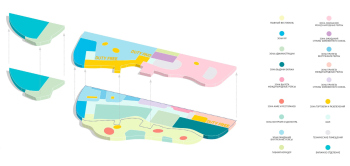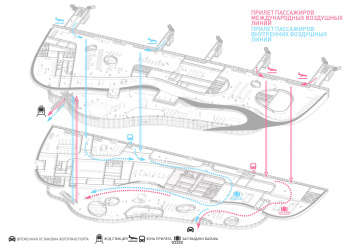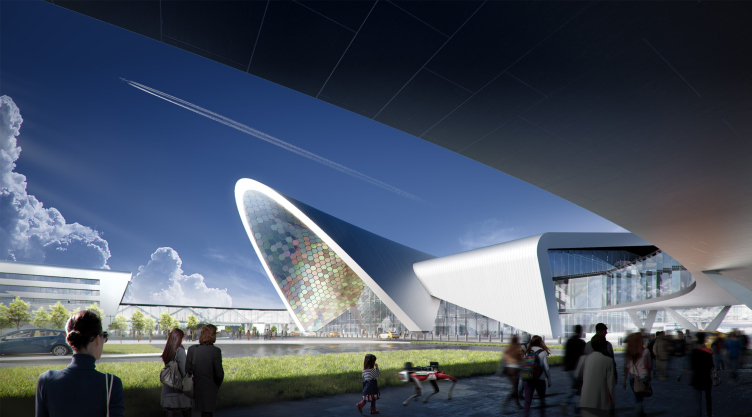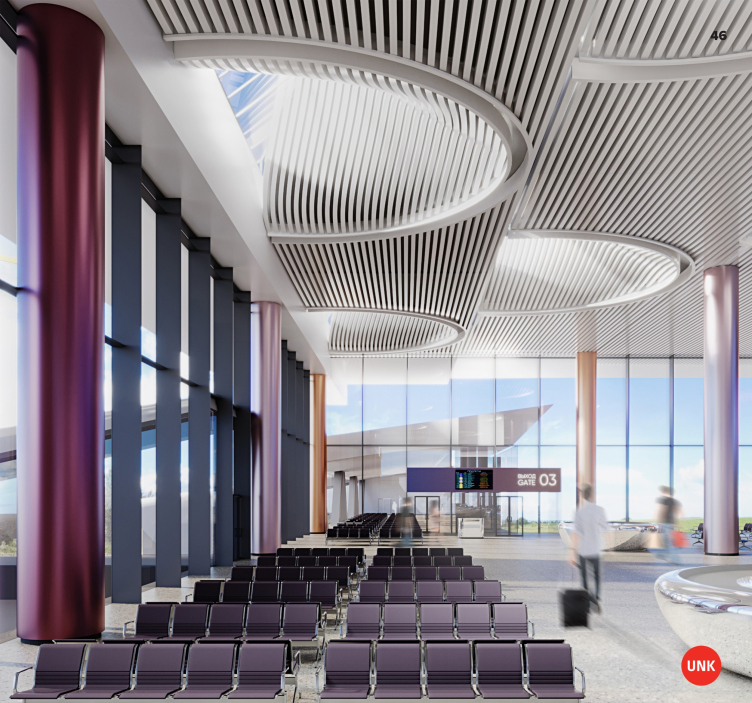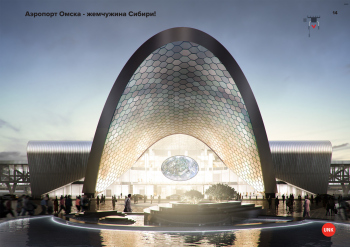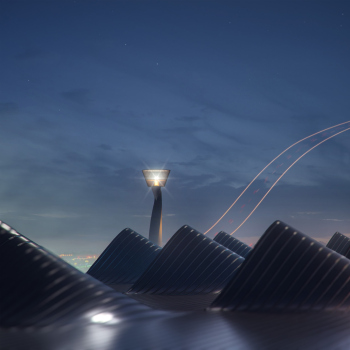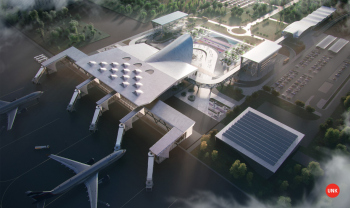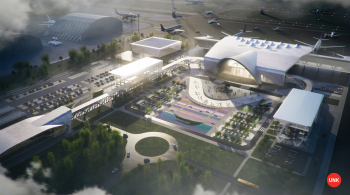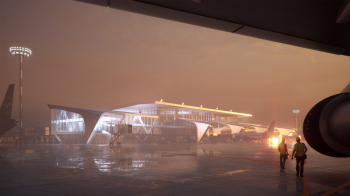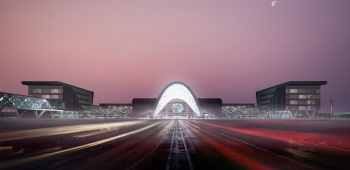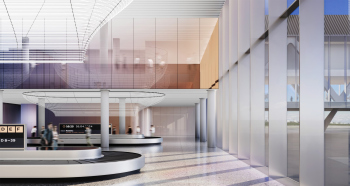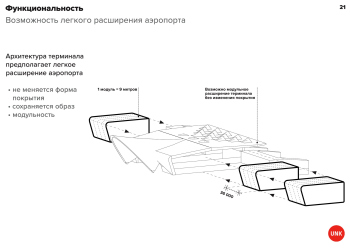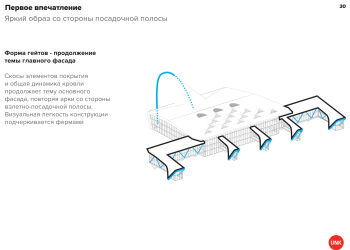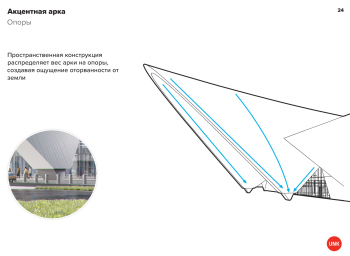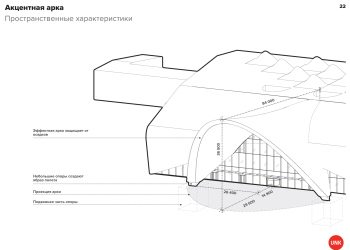It was “Airports of Regions” that suggested to all participants the idea of making an airport where airplanes are all visible from the entrance – a terminally transparent airport. Hence, all the projects turned out to be very transparent. The airport area will feature passenger and cargo terminals, administrative buildings, a hotel, and a railway station. The new facility will serve about 3,500,000 passengers per year.
The architectural council considered seven applications, three of which did not reach the public vote – these are proposals from the GORA bureau, Nefa, and DNK ag, you can see them here. Four projects made it to the final: IND, HVOYA, “Studio 44”, and UNK. It is rumored that during the council’s deliberations, the first place went to “Studio 44”.
Later on, however, the projects were sent for “popular vote”. You could leave your vote for one of the works until March 29 in the telegram channel and VK account of the governor of the Omsk region, Vitaliy Khotsenko. They promised that the project with the highest number of votes would be implemented.
Ultimately, the popular vote was won by HVOYA
IND / “Wind Dance”
Omsk-Fedorovka Airport. Competition bid by IND
Copyright: © IND
The architects were inspired by the nature of the region, which includes not only forests but also the windswept Kurumbalskaya steppe. The terminal’s design visualizes air currents: colliding with each other, they blend and form soft waves. The architectural solution symbolizes the interweaving of cultures and people united by the hospitable land of Omsk.
“We literally designed in a windswept field, and this is the uniqueness of the new airport, and we found inspiration in the nature of the steppe, the movement of the wind, freedom, space, and the interweaving of cultures. All these layers and juxtapositions formed into a shape reminiscent of flight” write the architects.
Omsk-Fedorovka Airport. Competition bid by IND
Copyright: © IND
Another authorial clarification: “And we also wanted to find a personality for inspiration, and we decided that for the theme of ‘wind dance’, we needed to find a female image – so we found Valentina Tulupova, a ballerina who worked in Omsk, an honorary citizen of Omsk, and we named the airport after her”.
Indeed, both the airport itself and all the surrounding structures appear as if they were sculpted by the wind.
Columns in airport spaces have also become a popular theme: “It was very important for us to make the structures the main ‘highlight’ of the project. The central large-span space rests on columns, which, due to their shape, seem to float in the air”.
HVOYA / “The Gate”
Omsk-Fedorovka Airport. Competition bid by HVOYA
Copyright: © HVOYA
The team abandoned the standard layout in favor of permeability and easy navigation: “In our project, we abandoned the standard layout of the terminal, which involves a rigid longitudinal division of the building into uncontrolled and controlled airspace, respectively facing the city and airfield facades. Instead of a maze-like building where disoriented passengers move according to navigation signs, we propose a clear, convenient, and permeable terminal. All the passenger areas – both uncontrolled airspace (registration hall and café for escorts and meeting guests) and controlled (waiting rooms for domestic and international flights) – visually connect with the city and the airfield platform”.
Entering the terminal, the passengers can see takeoffs and landings through large arched windows throughout their journey, turning the building into a portal between sky and earth. Enhancing this image are the city’s landmarks – Tarsk and Tobolsk gates. Three large and bright “hangars” mark the airport zone, while three smaller arches denote the railway terminal.
Omsk-Fedorovka Airport. Competition bid by HVOYA
Copyright: © HVOYA
The arches, reminiscent of the Basilica of Maxentius – only larger – are very impressive; a wide esplanade leads to them in the project.
The trees inside the airport terminal are a highlight. There is plenty of natural light for them, you can feel it.
Studio 44 / “Scaly Wing”
Omsk-Fedorovka Airport. Competition bid by Studio 44
Copyright: © Studio 44
The architects propose to combine the terminals and administrative sections into a single building, which has a streamlined wing or even a fin-like shape. In the event of possible airport expansion, the building should have a mirrored pair. Parametric panels on the roof resemble slightly ruffled feathers caught by the wind, and the finish of the canopy with wooden rails waves flows into the interior spaces of the terminal, creating the sensation of a powerful wing stroke.
What it results in is a sculptural, emotional, and technically justified contrast. The wave of the ceiling consists of glass pyramid prisms; their peaks are pointed downward, while the facets gently open towards the sun. The ceiling takes on a “crested” appearance.
Omsk-Fedorovka Airport. Competition bid by Studio 44
Copyright: © Studio 44
The effect of such a ceiling, simultaneously rugged and luminous, is even stronger inside than outside. Another important aspect is that it is parametrically calculated. The wooden waves are different and smoother; they deflect over long distances, making way for the flow of movement, and reacting to passenger flows – as is known, this is one of the trademark techniques of Studio 44.
UNK / “The Pearl of Siberia”
Omsk-Fedorovka Airport. Competition bid by UNK
Copyright: © UNK
“We are confident that the new airport should become the pearl of Siberia, emphasizing local identity. The key images of the project are the river pearls, an integral element of the adornments of the peoples of Siberia, and the rivers Irtysh and Om – the natural treasures of the region” say the architects.
The centerpiece of the composition will be the entrance arch faced with mother-of-pearl panels, adorned with Mikhail Vrubel’s “Pearl” (the artist was born in Omsk) – not long ago we admired his painting in the Tretyakov Gallery. The pearl also reminds of the traditional decorations and riches of the rivers Om and Irtysh.
Omsk-Fedorovka Airport. Competition bid by UNK
Copyright: © UNK
The main arch is pointedly parabolic and protruding forward – the architects emphasize that it will protect a sufficiently large area in front of the entrance from the rain. On the roof, it is echoed by a neat “bird’s beak” composed of streamlined skylights – on the inside, they are elongated into large “pipes” smoothly flowing into a striped white ceiling.
The project includes the possibility of future expansion, and according to the architects, it is cost-efficient and easily implementable.


